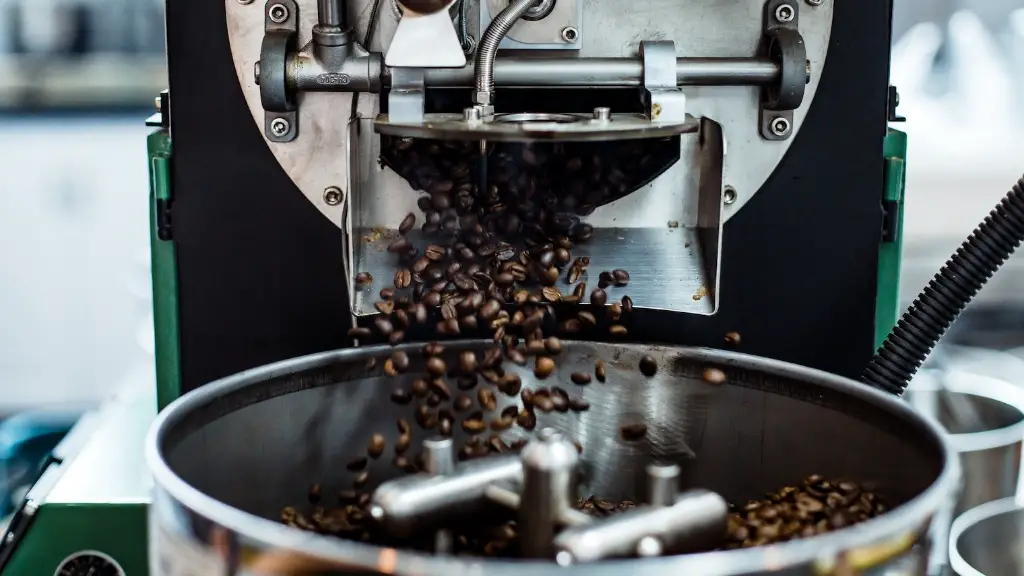Drinking coffee during pregnancy has long been seen as something that mothers-to-be should avoid. In the past, pregnant women were warned to limit their caffeine intake to maximum 200mg a day, the equivalent to two 8-ounce cups of coffee.
Todays’ more relaxed attitude has been accompanied by a handful of studies, suggesting that drinking coffee while pregnant may actually be beneficial to both mother and baby. Recent research suggests that, in moderation, coffee drinking during pregnancy can hold a number of health benefits.
An expert obstetrician and gynecologist at Cedars-Sinai in Los Angeles, who focuses her practice on maternal-fetal medicine, Dr. Lauren Streicher, states that coffee is only one source of caffeine, with the others being tea, colas, chocolate and energy drinks. She suggests that pregnant women who don’t limit all of their caffeine sources, run the risk of exceeding the maximum safe dose for their baby’s health, which is a maximum of 200mg per day.
The 2015 study conducted by researchers at the Norwegian Institute of Public Health, which looked at over 50,000 women, found that moderate caffeine consumption (less than 200 mg, or two cups of coffee, a day) did not increase the risk for miscarriage. However, drinking more than 200mg a day was linked to a higher risk of miscarriage.
The same study concluded that caffeine consumption during pregnancy was also not associated with an increased risk of stillbirth or preterm delivery. The authors of the study reassured pregnant women that the consumption of caffeinated beverages in moderation is a low risk activity.
However, at a very high level of consumption, it is thought that caffeine could affect the baby’s growth, such as their overall size. It is thought that caffeine could travel through the placenta to reach the fetus and research suggests that, as with adults, caffeine has a stimulant effect on the unborn baby, raising their heart and breathing rate.
Despite the lack of significant evidence indicating any significant risks associated with drinking coffee while pregnant, it is still wise to limit one’s caffeine intake. This is because research into the effects of caffeine on pregnant women and their unborn babies is still in its early phase, and more information is needed. Health organizations continue to be cautious of it and recommend expecting mothers to limit their caffeine intake to 200mg a day.
Benefits of Coffee During Pregnancy
Coffee can be a beneficial part of a pregnant woman’s diet, aiding her body to stay healthy for herself and her baby. Despite the fact that about 95% of the research indicates that moderate caffeine intake does not have harmful effects on the fetus, it still has many nutritional benefits.
Studies have demonstrated that moderate coffee intake during pregnancy does have its benefits. Pregnant women have shown to reap the benefits from a single cup or so of coffee or caffeine-rich beverages a day. Coffee contains both essential nutrients, such as magnesium and potassium, as well as plant-based antioxidants which are beneficial to a healthy diet.
Coffee also contains numerous stimulants that can improve an expecting mother’s alertness and cognitive abilities, which can be useful as expecting mother’s body goes through significant changes. Coffee can provide energy during the first trimester, which can be a time of extreme fatigue. Additionally, coffee has been found to significantly improve mental alertness and performance during the second and third trimester.
In addition to improving physical performance, experts agree that moderate coffee intake during pregnancy can improve mental health. Researchers have demonstrated that moderate intake of coffee intake can help to reduce depression in pregnant women, by boosting brain’s mental function and feelings of well-being.
Risks of Coffee During Pregnancy
Despite the fact that many studies indicate that moderate coffee intake during pregnancy is safe, there are still a few risks associated with it. As with anything, it is important to consume coffee in moderation, as too much can lead to adverse effects. One of the associated risks of drinking coffee while pregnant is an increased risk of dehydration.
Caffeine is a mild diuretic, meaning that it helps to trigger fluid loss. As a result, a pregnant woman who drinks too much coffee may end up dehydrated, which is bad for the fetus. According to the American College of Obstetrics and Gynecology (ACOG), pregnant women should avoid consuming more than 200 milligrams of caffeine per day.
In addition to potential dehydration, over consumption of coffee can cause increased anxiety, restlessness and insomnia for pregnant women. If these symptoms are not addressed and the expectant mother does not begin to moderate her consumption, it can cause additional complications, such as gestational diabetes.
These symptoms are generally more pronounced in expecting mothers who do not regularly consume coffee, though they can also be present in habitual coffee drinkers who consume more than their previously established tolerances. As with anything, it is important to listen to one’s body and, when feeling unwell, reduce one’s caffeine intake.
The Long Term Effects of Coffee During Pregnancy
Many women worry about the long term effects of drinking coffee during pregnancy. While there isn’t any one- size-fits-all answer, the generally accepted consensus is that caffeine intake in moderation, that is up to 200mg per day, is safe for pregnant women.
Given the potential risks associated with drinking coffee while pregnant, it is important for women to monitor their caffeine intake. If an expecting mother knows she can safely drink coffee, it is still advised to limit intake to one or two cups each day. If woman finds that she “needs” more coffee than that, it is often time to re-evaluate one’s lifestyle.
As with anything, it important for pregnant women to listen to their bodies, and accept the advice of medical practitioners. With that being said, medical advice on the need to abstain during pregnancy has changed over recent years and is likely to continue to change.
Coffee During Pregnancy: A Summary
Drinking coffee while pregnant has been a topic of debate for many years, with studies regularly being published that offer conflicting advice. For decades, pregnant women were warned to avoid coffee, tea and other caffeinated beverages. However, recent research suggests moderate levels of coffee consumption may be beneficial.
It is important for pregnant woman to remember to listen to their bodies, and accept the advice of their medical practitioners. The key is to consume coffee – and other caffeine-rich beverages – in moderation.
Alternatives to Coffee During Pregnancy
If expecting mothers are unable to drink coffee during pregnancy, there are many naturally-caffeine free options that can still provide the same mental and physical benefits as coffee would. Some of the most popular replacements include decaffeinated coffee, caffeine-free tea, fizzy lemonade and cacao.
In addition, various herbs can offer way to increase energy levels, while still providing necessary nutrients to both mother and baby. Many natural alternatives contain anti-inflammatory nutrients, which may be beneficial to pregnant woman, including ginger, turmeric, gingko and oatstraw.
Finally, pregnant women can find energy boosting benefits in many of the healthy food sources. Commonly suggested foods are oatmeal, avocado, quinoa, nuts and infusion water. Each of these foods can be packed with energy while containing much less caffeine than coffee and tea.
Should You Drink Coffee During Pregnancy?
While expecting mothers are initially recommended to abstain from drinking coffee during pregnancy, research has demonstrated that moderate levels of caffeine may provide nutritional benefits for pregnant women and their unborn babies. However, due to the potential risks of higher caffeine intake, expecting mothers should be aware of their own bodies, limit their caffeine intake, and speak to their medical practitioners if they are concerned in any way.





